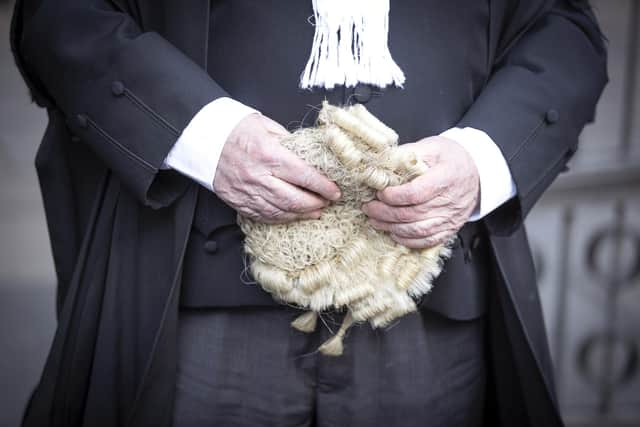Lawyers attack Scotland reforms as 'risking seriously undermining the rule of the law and the independence of Scotland’s legal sector'
Scotland’s legal profession has said proposals for reforms to how it regulates itself is an attack on the independence of the sector and could even be used by foreign dictators to justify crackdowns on the judiciary.
In scathing attacks, professional legal bodies across Scotland have rounded on plans in the proposed Regulation of Legal Services (Scotland) Bill, which would give ministers the power to intervene in how the legal sector is regulated.
Advertisement
Hide AdAdvertisement
Hide AdThe bill, at stage one, was introduced by justice secretary Angela Constance and is the result of years of lobbying for change from the likes of the Law Society.


The legislation would allow ministers to set performance targets, direct that action be taken, publish a statement of censure, impose a financial penalty, or make changes or remove some or all of the regulator’s regulatory functions if they deem it not to be operating in line with the public interest.
All of these measures, bar imposing a financial penalty, would require the agreement of the Lord President, Scotland’s most senior judge. This measure, designed to safeguard the legal sector’s independence, has been criticised as potentially politicising the position held by Lord Carloway.
However, in evidence to Holyrood’s equalities, human rights and civil justice committee, which is considering the Bill at stage one, the legal profession called on these powers to be removed entirely from the legislation.
The Law Society of Scotland, which regulates solicitors, said the measures in the Bill could not be found anywhere else in “any other western democracy” and “risk seriously undermining the rule of the law and the independence of Scotland’s legal sector from the state”.
They added: “We have never before seen such an attempt at political control over the legal sector in Scotland.
“It could see the Scottish Government intervene directly on the rules and structures that decide who can and cannot be a solicitor, decide the professional requirements placed upon solicitors, and decide the way in which legal firms operate. This is deeply alarming.”
They also raise concerns over another section of the Bill, which would allow the Government to “appoint itself as a direct authorisation body or regulator of legal businesses”.
Advertisement
Hide AdAdvertisement
Hide AdThe society states: “It opens the prospect, one never before suggested, that the state could regulate law firms directly. We believe it is dangerous and wrong to undermine the independence of the legal profession in this way.
“There is a real risk that autocratic regimes in other parts of the world could use Scotland as an excuse to justify similar controls on the lawyers in their own countries.”
The Faculty of Advocates, which regulates advocates in Scotland, is also heavily critical of the Bill.
They state: “The fundamental observation faculty would make in relation to these sections is that they open the way to ‘regulation’ being used as a back-door by which the executive branch of the state may seek to control or influence the independent legal profession, whose role is often to hold the executive to account.
"That possibility need only be stated for its undesirability in a modern democracy to be manifest. Faculty does not suggest for a moment that this is perceived to be the intention of current ministers, but history teaches us that, where the exercise of executive power is concerned, it is not always present intention that matters.”
Other bodies, such as the International Bar Association, warn the Bill will harm the reputation of Scotland’s legal sector, while the Senators of the College of Justice – Scotland’s 36 judges – said “these proposals are a threat to the independence of the legal profession and the judiciary”.
A Scottish Government spokesperson said: “The Scottish Government has no intention of changing the vital importance of having an independent legal sector.
“The promotion of an independent, strong and diverse legal profession is enshrined in the Bill while providing for a modern regulatory framework to promote competition, innovation and improve the transparency and accountability of legal services regulation, taking into account public and consumer interests.
Advertisement
Hide AdAdvertisement
Hide Ad“We will continue to engage both consumer and legal stakeholders as this legislation proceeds through Parliament.”
A spokesperson for the Scottish Parliament said: "The committee will consider the submissions it has received, and then invite witnesses to give evidence in public as it continues to scrutinise the Bill."
